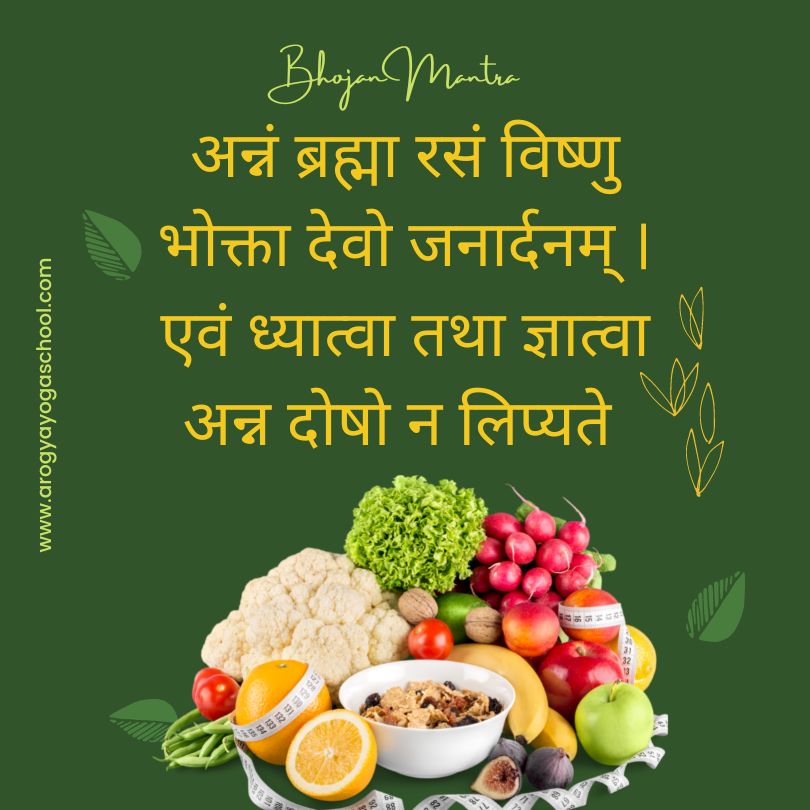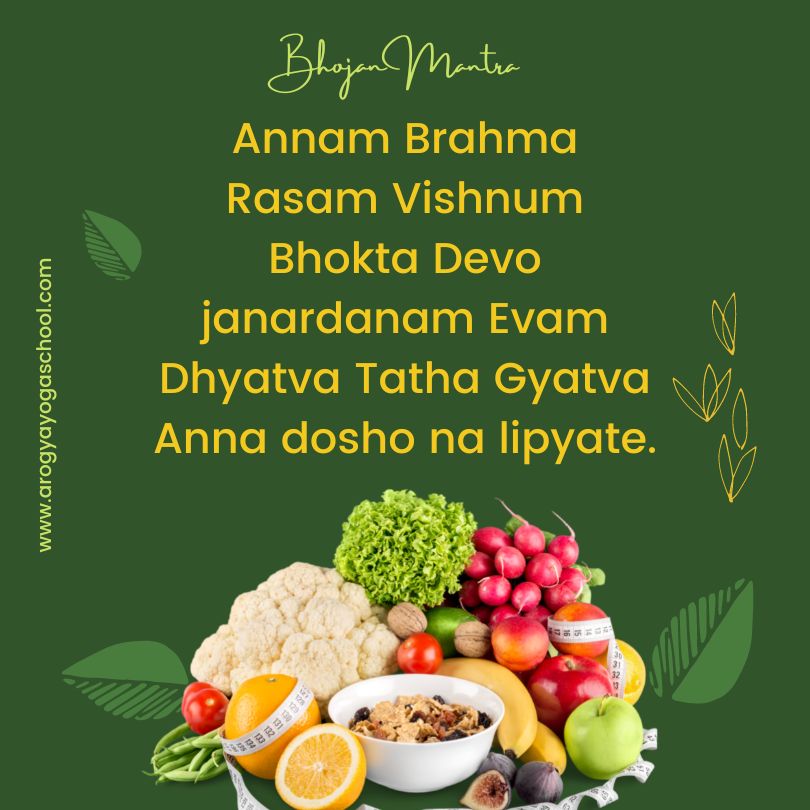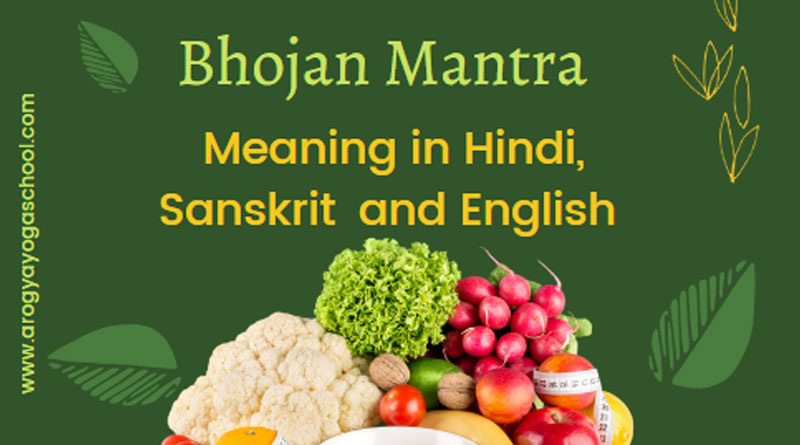Bhojan Mantra in Sanskrit with Meaning
अन्नं ब्रह्मा रसं विष्णु भोक्ता देवो जनार्दनम् । एवं ध्यात्वा तथा ज्ञात्वा अन्न दोषो न लिप्यते
Mealtime Prayers English
Annam Brahma Rasam Vishnum Bhokta Devo janardanam Evam Dhyatva Tatha Gyatva Anna dosho na lipyate.

Aanna Brahma Aaso Vishnu sloka Meaning in Hindi, Sanskrit, and English
अन्नम ब्रह्म रसं विष्णुं भोक्ता देवो जनार्दनम् एवम् ध्यातव तथा ज्ञत्व अन्न दोषो न लिप्यते।

Meaning of Mantra:
Food is Brahma, the essence in it is Vishnu, and the one who consumes (enjoys) it is Maheshwara the Lord Himself. If you know this, then any impurities in the food will not become a part of you.
A prayer or invocation is offered before eating. The act of consuming food is considered to be a Yajna (sacrifice) and the offering goes to the divine authority called Jataragni, the digestive fire in the belly. It is that principle that breaks down the food consumed into a form that can be supplied through the blood for the whole body. The creative energy in the food (Annam) is Brahma. The nourishing energy (Rasa) in the body is Vishnu. The transformation of food into pure consciousness is Shiva. If you know this, then any impurities in the food you eat will never become part of you.
This shloka is chanted before eating food so that even while eating, our attention is focused on the food, and we eat it with an awareness of its importance.
While eating our food, we must utter the words, “Annam Brahma” (food is God); Raso Vishnuhu (the essence of food is Vishnu). Food is God. It gets into the body and provides its essence to all the parts of the body. It indeed gets transformed into blood and energy. Bhoktodevo Maheswarah (the one who consumes the food is Maheswarah). This principle teaches wisdom to the whole world. Annam Brahma, Raso Vishnuhu, Bhoktodevo Maheswarah– These three correspond to mind, body, and action, respectively.
Manasyeka Vachasyekam Karmanyekam Mahatmanam
( those whose words, thoughts, and deeds are in complete harmony are noble ones.)
The oneness of thought, deed, and word is ritham.
They represent the Trinity of Brahma, Vishnu, and Maheswara. The partaker of food is the very embodiment of Siva’s principle. See Annapurna Stotra
The act of eating is considered a yajna (sacrifice), and the offering goes to the divine authority called Jataragni, the digestive fire in the belly. It is this principle that breaks down the food consumed into a form that can be delivered to the entire body through the blood.
The creative energy in the food (Annam) is Brahma. While eating our food, we must utter the words “Annam Brahma” (food is God) and; Raso Vishnuhu (the essence of food is Vishnu). Bhoktodevo Maheswarah (the one who consumes the food is Maheswarah).




